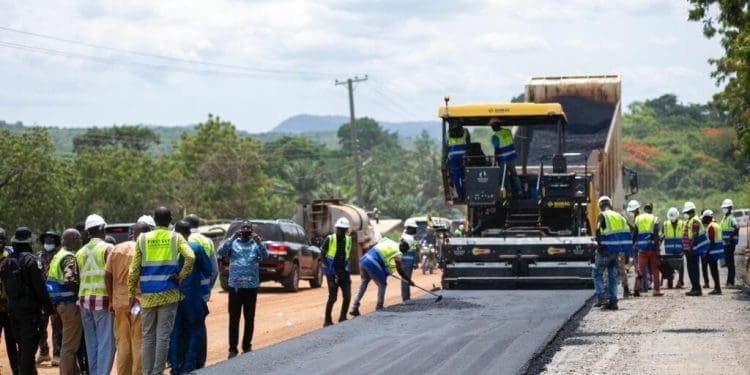The Ghana Highway Authority (GHA), operating under the Ministry of Roads and Highways, has accumulated interest liabilities amounting to GH¢615.9 million (GH¢615,990,059) due to delayed payments on contractor certificates as of the end of 2023.
This revelation is contained in the latest Report of the Auditor-General on the Public Accounts of Ghana: Public Boards, Corporations and Other Statutory Institutions for the period ended 31 December 2024.
According to the Auditor-General, the interest accrued is in line with contract clauses that provide for compound interest on certified payments outstanding for more than three months.
These agreements bind the Authority to compute interest on a compound basis, meaning interest continues to build not just on the principal sum owed but also on the accumulated interest.
This has created a spiralling financial burden that grows daily and significantly compounds the state’s total obligations to road contractors.
The Auditor-General warned that this practice has broader implications beyond the Highway Authority’s balance sheet.
It will inevitably lead to cost overruns on ongoing and future projects, and more critically, deprive the government of scarce resources needed for other developmental programmes.
The report urged management of the Authority to collaborate with relevant stakeholders to raise adequate funding to address the growing liability and ensure that infrastructure projects are not stalled due to delayed payment of contractor certificates.
Furthermore, the Auditor-General cautioned against awarding new contracts without the necessary funding in place to guarantee their completion.
In its response, management of the Ghana Highway Authority acknowledged the interest accrual but explained that it was caused by delays in the release of funds from the Central Government.
They noted that if government releases were made on time, the accumulation of interest would be avoided entirely.
Despite these liabilities, the Authority’s financial performance showed improvements in other areas in 2023.
It recorded a deficit of GH¢34.9 million (GH¢34,935,039), an improvement compared to the deficit of GH¢50.9 million (GH¢50,697,022) reported in 2022.
This represented a 31.1% decline in the deficit.
Total income for the year rose by 57.8% to GH¢7 billion (GH¢7,150,732,985) from GH¢4.5 billion (GH¢4,530,854,579) in 2022.
This substantial increase was largely due to greater inflows from government subsidies and donor support.
Correspondingly, total expenditure also increased by 56.8%, rising from GH¢4.5 billion (GH¢4,581,551,601) in 2022 to GH¢7 billion (GH¢7,185,668,025) in 2023.
The rise in spending was mainly attributed to heightened investment in road infrastructure across the country.
In terms of assets, the Authority’s non-current assets declined by 3.7%, dropping from GH¢1.1 billion (GH¢1,151,747,832) in 2022 to GH¢1.1 billion (GH¢1,109,497,471) in 2023.
The reduction was primarily due to depreciation charges recorded during the year.
However, current assets experienced a marginal increase of 0.2%, moving from GH¢5.4 billion (GH¢5,456,567,033) to GH¢5.4 billion (GH¢5,466,218,895).
This was largely the result of increased bank balances.
On the liabilities side, current liabilities decreased slightly by 0.3%, falling from GH¢5.4 billion (GH¢5,424,668,266) in 2022 to GH¢5.4 billion (GH¢5,406,432,417) in 2023.
The decline was mainly due to a reduction in accounts payable. Nonetheless, the Authority’s current ratio remained unchanged at 0.2:1, a figure that indicates the Authority continues to face significant challenges in meeting its short-term financial obligations.
The Ghana Highway Authority’s growing interest burden, tied to delayed payments, presents a serious risk to infrastructure delivery and financial sustainability.
Without timely intervention and reform in contract financing and fund disbursement practices, the liabilities will only continue to grow, hampering the government’s ability to execute critical projects and potentially undermining the country’s broader development agenda.












